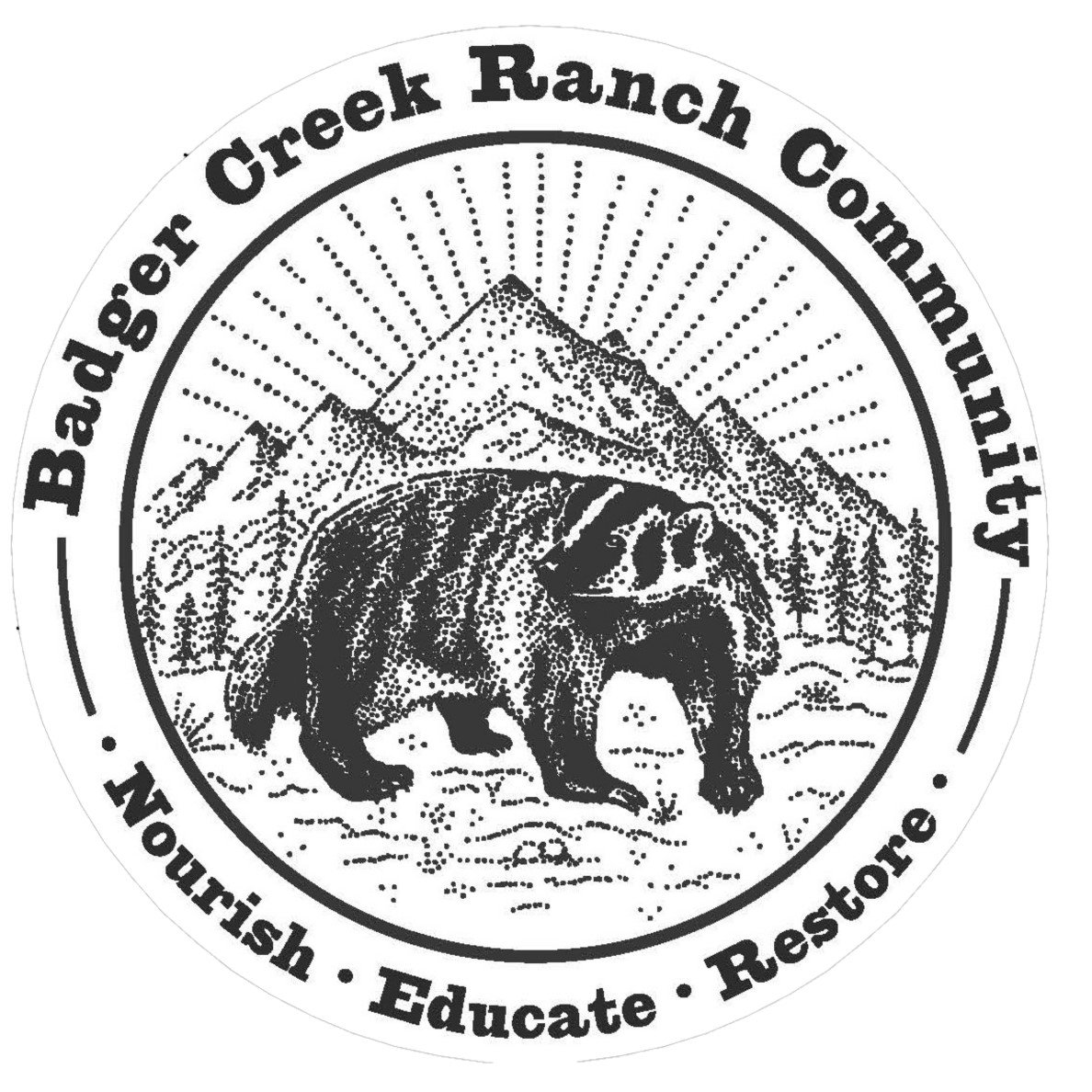Learning with Nature
August 16, 2019
Draw an X across the state of Colorado, and almost at the center of the X you will find Badger Creek Ranch. Similarly, look at a map of the Badger Creek Watershed and Badger Creek Ranch is right in the center, or at the heart of the watershed. Synchronicity? Maybe, or maybe it’s a reflection of our connection with this land.
It’s been a busy summer at Badger Creek! As a key member of the Badger Creek Watershed Partnership, we’ve been working collaboratively with other landowners including federal and state agencies, partnering with our local land trust, soil conservation district, community members, youth conservation corps, and more. This summer, Full Circle Alliance supported two events as part of this initiative: the annual Badger Creek Land Health Workshop (Aug. 16-17) and the Open Gate at Badger Creek Ranch (Sept. 29).
Landowners, ranchers, and experts on land health and regenerative ranching gathered at Badger Creek Ranch in mid-August for a Land Health Workshop. Workshop instructors demonstrated and discussed practices that improve the health and prosperity of working lands in the Rocky Mountain West, including its landscapes, watersheds, and native species.
These types of regenerative agriculture workshops provide critical local opportunities for producers who are interested in changing agricultural practices due to the greater pressure that climate change exerts on agricultural operations, noted Ann Adams, executive director of Holistic Management International. At the same time, there is a growing demand for regeneratively-raised food that is creating new markets for agricultural producers who often struggle to make a profit in a commodity market.
“More consumers are purchasing food grown with regenerative practices,” Adams said. “A recent study found that more than 80 percent of Americans have organic food in their refrigerator. In addition, many of the environmental challenges we face—excess carbon in the atmosphere, desertification, and loss of wildlife habitat and biodiversity—can be mitigated with regenerative agricultural practices. For example, one study showed that cattle managed regeneratively increased soil carbon by 1,600 pounds per acre.”
The workshop offered an opportunity to learn about how the health of the Badger Creek watershed, which covers 211 square miles of the southwest portion of South Park, has a significant impact on downstream Front Range communities including Cañon City and Pueblo. More than a century ago, open range grazing and development of roads that started as wagon trails helped accelerate erosion that has caused a loss of cover vegetation and wetland and river habitat, lowered the water table, disrupted the protective sod layer, and encouraged the spread invasive species and weeds. In a normal year, 39,600 tons of sediment erodes into the creek.
Intense thunderstorms that normally occur once or twice a summer cause flooding that can cause a spike in runoff from the normal summertime flow of five cubic feet per second to more than 1,000 cubic feet per second. A record-setting flood in the summer of 1979 reached almost 10,000 cubic feet per second, sending a sediment plume into the Arkansas River that flowed downstream for more than 50 miles. That flow from Badger Creek was more than the Arkansas River’s typical flood stage of almost 7,000 cubic feet per second, and topped Salida’s record flood stage of 9,220 cubic feet per second.
Aaron Kauffman, of Southwest Urban Hydrology, worked with participants to build soil conservation and erosion control structures in the Badger Creek drainage that address common erosion features on a disturbed landscape. He demonstrated how similar erosion structures built last year at this location are helping to stabilize the soil.
Workshop participants learned how to read the landscape to better understand surface water flow and the process of erosion. They created local soil profiles to assess soil texture, infiltration rates, moisture retention, and runoff. Kauffmann noted how sustainable management of grazing practices, road development, channel flow, and fire can help reduce erosion and enhance the health of soils and rangeland soils and rangeland.
Workshop participants also analyzed the health of the vegetation and soils in the Badger Creek drainage with Kirk Gadzia, founder of Resource Management Services and Holistic Management® Certified Educator. He provided information about comprehensive grazing planning. Brief presentations were also made by the Bird Conservancy of the Rockies and the Colorado Section Society for Range Management.
The workshop was organized by the Quivira Coalition in partnership with Badger Creek Ranch, which is a Holistic Management International Learning Site, the Central Colorado Conservancy, National Grazing Lands Coalition, Colorado Section Society for Range Management, Upper Arkansas Conservation District, Rocky Mountain Farmers Union, and the Bird Conservancy of the Rockies.




